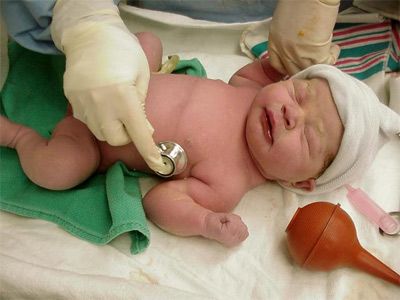Many couples rely on ovulation predictor kits, or OPKs, to identify when the woman is most fertile. An OPK can detect a surge in the production of luteinizing hormone (LH), which occurs roughly 36 hours before ovulation. The accuracy of OPKs relies on the fact that by timing intercourse shortly after the LH surge, you can increase your odds of bringing sperm and egg together at the time when conception is most likely to occur.
Sounds easy, right? In a perfect world, ovulation prediction kits would infallibly detect ovulation, and ovulation would inevitably lead to pregnancy. The reality is more complicated, so be sure to consider the pros and cons of OPKs before trusting your fertility exclusively to this method.
Advertisement
Pros of Ovulation Prediction Kits
1. Ovulation prediction kits are more precise than other methods of monitoring ovulation. Used correctly, the major-brand ovulation prediction kits are more than 97 percent effective in detecting an LH surge.
2. Ovulation prediction kits are convenient. Ovulation prediction kits are used only in the middle of your cycle, during the time when you would be most likely to ovulate (note that it helps to have a sense of your typical cycle length, so start keeping track now if you haven't already). Other methods, such as charting your basal body temperature (BBT), require a daily commitment.
3. Ovulation prediction kits are widely available. You can get them over the counter at drugstores, pharmacies, and even major supermarkets and convenience stores.
4. Ovulation prediction kits are easy to use. Ovulation kits are similar to home pregnancy tests — you simply urinate on the test stick, activating a chemical that can detect your LH surge. Most OPKs contain between five and nine test sticks.
Cons of Ovulation Prediction Kits
1. Ovulation prediction kits do not test for ovulation. Ovulation predictor kits measure the LH surge that precedes ovulation, but can't confirm whether you have actually ovulated. Occasionally, an egg fails to emerge from its follicle after the LH surge has occurred, a condition known as LUFS (luteinized unruptured follicle syndrome).
2. Ovulation prediction kits don't indicate whether cervical mucus is conducive to fertilization. The mucus produced by the cervix in midcyle, which you experience as vaginal discharge, must have a certain consistency (clear and elastic, like egg whites) in order to provide a fertile environment for sperm to swim through. Ovulation prediction kits do not monitor cervical mucus.
3. Ovulation prediction kits don't work when certain fertility drugs are present in the system. OPKs do not function reliably when injectable fertility drugs such as Pergonal or the hormone hCG (e.g., Profasi) are present in the system.
4. Ovulation prediction kits do not work consistently on women over 40. Some women in their 40s, especially those approaching menopause, have increased levels of LH in their systems at all times, rendering the tests invalid.
5. Ovulation prediction kits don't come cheap. These kits cost between $15 and $50 depending on the brand and number of tests included. Each is good for a single cycle.
Should you use an ovulation prediction kit?
Although in most cases, ovulation prediction kits provide an accurate forecast of your LH surge and subsequent ovulation, they are most effective when used together with other monitoring methods. Along with an OPK, try examining your cervical mucus and charting your basal body temperature — the term refers to your lowest, or baseline, temperature, and is usually taken first thing in the morning. These methods combined can greatly increase your chances of becoming pregnant.
Advertisement
